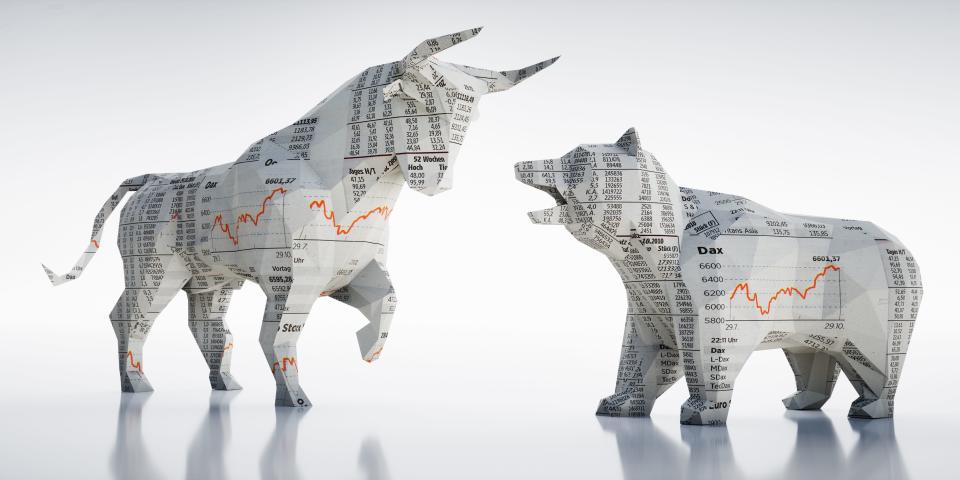The bull market in stocks could disappear as investors get whacked by even higher interest rates and higher unemployment from the Fed's inflation fight, Bank of America says

The fresh bull market in stocks could be wiped out if interest rates and unemployment tick higher.
Strategists at BofA predicted the Fed would continue to raise rates to battle inflation.
Investors have grown more bullish on stocks, and could be caught off guard, BofA said.
The bull market in stocks could get slammed back down, as the Federal Reserve's inflation fight will raise interest rates even higher and spark higher unemployment in the economy, Bank of America said.
"Fed ain't done with hikes… we stick with 'sell the last rate hike' call," a team of strategists led by Michael Hartnett said in a note on Friday, pointing to headwinds as the central bank raises interest rates to fight inflation.
Fed officials could end up raising interest rates to 6% within the next 12 months, strategists predicted, lifting the Fed funds rate another 75-100 basis points above its current range. That's largely because the central bank remains focused on its goal of bringing inflation back down to 2%, with officials warning that rates could stay elevated through the end of the year.
Getting inflation below 3% could also bring a 4% or higher unemployment rate, as higher rates tighten financial conditions and weaken the labor market.
"We remain bearish; still think biggest 'pain trade' next 12 months Fed funds 6% not 3%," strategists added, suggesting that investors were too bullish on the current rally in stocks that's seen the S&P 500 rise 20% from its low in October.
Inflation has remained well-above the Fed's 2% target for the past year, and clocked in at 4.9% in the April Consumer Price Index report. Core inflation measured 5.5%, a sign that inflation is still running hot in the economy.
Meanwhile, rates are at their highest level since 2007, which threatens to overtighten the economy and tip it into a recession. The bank estimated there's a 25% chance that US could enter a recession in the next year, and a 70% chance the economy will enter a slowdown without a full-blown recession.
That comes as investors are growing more enthusiastic about stocks, with the S&P 500 up 13% from the start of the year and officially entering a bull market this week. The movement is partly driven by lower inflation expectations, as well as expectations that the Fed could pause rate hikes this month.
Read the original article on Business Insider

 Yahoo Sports
Yahoo Sports 